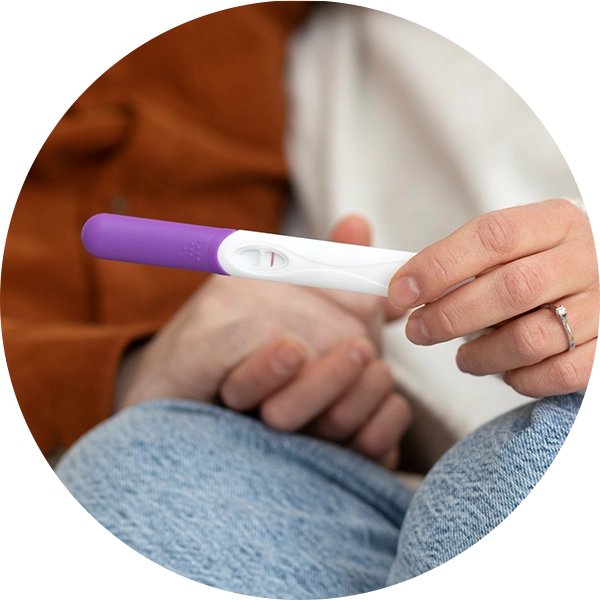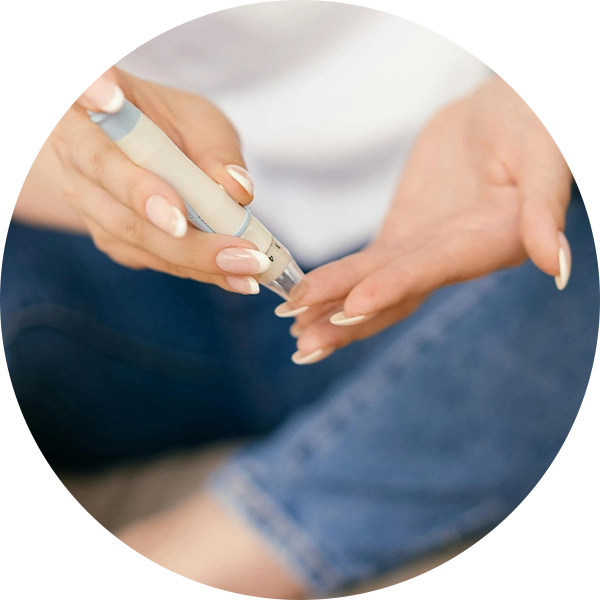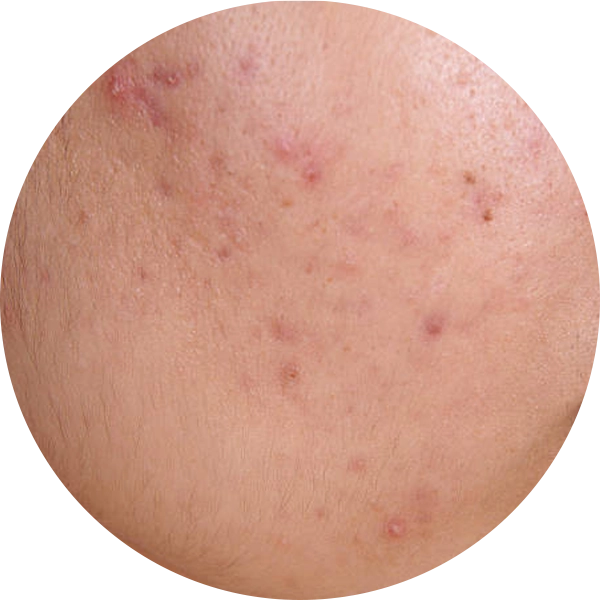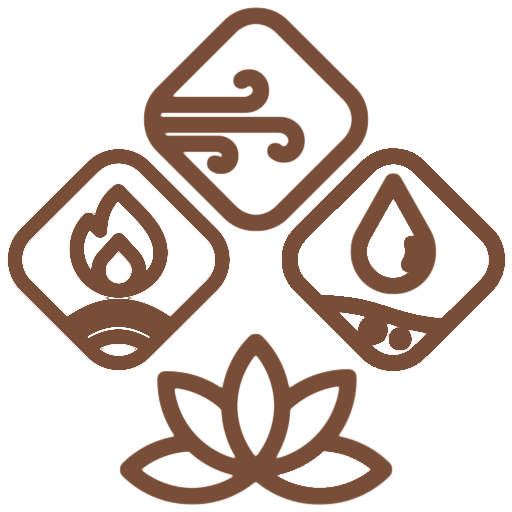Polycystic Ovary Syndrome (PCOS) is a complex and common endocrine and metabolic syndrome affecting women of reproductive age. Unlike PCOD, which primarily focuses on ovarian cysts and their related symptoms, PCOS is a systemic condition that impacts not just the reproductive system but also metabolic, hormonal, and mental health. It is characterized by hormonal imbalances, particularly high levels of androgens (male hormones), and is often linked to insulin resistance. PCOS carries long-term health risks, including a higher predisposition to obesity, type 2 diabetes, and cardiovascular disease.
In Ayurveda, PCOS is viewed as a systemic and chronic condition. While it falls under the umbrella of Avarana Janya Artava Dushti (menstrual disorders due to an obstruction), it is also deeply rooted in Meda Dhatu Vriddhi (an increase in fat tissue). The syndrome is a manifestation of a profound imbalance in all three doshas; Kapha, Vata, and Pitta.
The core of the issue is Kapha’s heavy and slow qualities creating an obstruction, but this obstruction affects not just the reproductive system but the entire metabolism. The increased Kapha leads to an accumulation of fat tissue (Meda Dhatu) and toxins (Ama), which in turn disrupt the functions of Vata (movement) and Pitta (metabolism).


A diet rich in processed foods, unhealthy fats, and refined sugars, combined with a sedentary lifestyle, significantly increases Kapha and contributes to Meda Dhatu Vriddhi (excess fat tissue).

A key factor in PCOS is the body’s inability to use insulin effectively. This is a primary metabolic imbalance that Ayurveda links to a deep-seated Mandagni (weak digestive fire) and Kapha vitiation.

Sustained mental and emotional stress leads to a constant vitiation of Vata and Pitta doshas, disrupting the delicate hormonal feedback loop that governs the menstrual cycle.

A family history of PCOS, insulin resistance, or diabetes can make one more susceptible to the condition.

Infertility

Obesity and Weight Gain

Insulin Resistance

Mood Disorders

Higher Androgen Features

Menstrual Irregularities








An improper diet and lifestyle lead to a vitiation of Kapha and the formation of deep-seated Ama (toxins).
The vitiated Kapha and Ama increase fat tissue (Meda Dhatu), leading to obesity and insulin resistance.
The increased fat tissue and Ama physically obstruct the channels that govern the reproductive system (Artava Vaha Srotas), preventing the normal function of the ovaries.
This obstruction causes Vata to move in an improper direction, disrupting the hormonal and menstrual cycles.
The disruption of the metabolic and hormonal functions leads to an increase in androgens, causing symptoms like hirsutism and acne, and impacting overall mental and physical health.
We begin with a detailed evaluation combining modern diagnostic tools with Ayurvedic assessments such as Prakriti (body constitution), Vikriti (current imbalance), dosha mapping, and lifestyle review. This dual lens helps us see the full picture of your health, beyond just the symptoms.
Ayurveda teaches us that diseases are born from underlying imbalances; not just isolated issues. We carefully study dietary habits, digestion (Agni), toxin accumulation (Ama), stress, and daily routines to uncover the true root cause of your condition.
No two patients are alike. Your treatment is tailored to your unique body type (Vata, Pitta, Kapha), disease stage, and co-existing conditions. This ensures maximum effectiveness and safety, while restoring balance at the deepest level.
Healing isn’t one-dimensional. Based on your needs, we combine:
This integrated approach ensures that body, mind, and spirit heal together.
Health doesn’t end with treatment. We equip you with home remedies, seasonal routines, lifestyle practices, and follow-up support to prevent relapse and help you sustain wellness for the long term.
Ayurvedic treatment for PCOS is a long-term, systemic management approach that focuses on deep detoxification, hormonal and metabolic correction, and rejuvenation (Rasayana). The treatment is not just for the ovaries but for the entire body. It includes a comprehensive plan for hormonal regulation and metabolic correction.

The aim is to regulate Vata and restore the natural flow.

The focus is to cool the body and reduce inflammation.

The goal is to reduce Kapha and Ama.

Warm, cooked, and light foods. Include bitter and pungent vegetables like bitter gourd, spinach, and fenugreek. Incorporate spices like turmeric, ginger, and cinnamon, which improve insulin sensitivity.

Cold, heavy, and processed foods. Limit dairy products, refined sugars, white flour, and fried foods. Avoid excessive intake of sweet and sour fruits.
| Do's | Don'ts |
|---|---|
Maintain a Regular Schedule: Go to bed and wake up at the same time to regulate hormones. | Avoid a Sedentary Lifestyle: Engage in regular physical activity. |
Manage Stress: Practice meditation, mindfulness, and gentle breathing exercises. | Avoid Excessive Coffee and Alcohol: These can disrupt hormonal balance. |
Eat Regular Meals: Avoid skipping meals to maintain stable blood sugar. | Avoid Processed and Packaged Foods: They are high in sugar, unhealthy fats, and toxins. |
Stay Hydrated: Drink warm water throughout the day to support metabolism and detoxification. | Don’t Suppress Emotions: Expressing your feelings in a healthy way is crucial for hormonal health. |
Poses like Surya Namaskar (Sun Salutation) are great for overall hormonal balance. Bhujangasana (Cobra Pose) and Chakki Chalanasana (Grinding Mill Pose) are particularly beneficial for stimulating the reproductive organs.
Bhramari (Humming Bee Breath) and Nadi Shodhana (Alternate Nostril Breathing) are excellent for calming the nervous system and managing stress.

In Ayurveda, PCOS is viewed as a systemic and chronic condition. While it falls under the umbrella of Avarana Janya Artava Dushti (menstrual disorders due to an obstruction), it is also deeply rooted in Meda Dhatu Vriddhi (an increase in fat tissue). The syndrome is a manifestation of a profound imbalance in all three doshas; Kapha, Vata, and Pitta.
The core of the issue is Kapha’s heavy and slow qualities creating an obstruction, but this obstruction affects not just the reproductive system but the entire metabolism. The increased Kapha leads to an accumulation of fat tissue (Meda Dhatu) and toxins (Ama), which in turn disrupt the functions of Vata (movement) and Pitta (metabolism).

Infertility

Obesity and Weight Gain

Insulin Resistance

Mood Disorders

Higher Androgen Features

Menstrual Irregularities
This is one of the most common and important questions that our patients ask us to clarify.
It may be possible to significantly improve blood sugar control, reduce symptoms, and support metabolic balance through the right combination of:
For some patients with a history of diabetes, this may mean reducing medication dependency.
For others, it may mean preventing complications and stabilising long-term health.
Every body is different, every outcome is different and our healing process respects that.


A diet rich in processed foods, unhealthy fats, and refined sugars, combined with a sedentary lifestyle, significantly increases Kapha and contributes to Meda Dhatu Vriddhi (excess fat tissue).

A key factor in PCOS is the body’s inability to use insulin effectively. This is a primary metabolic imbalance that Ayurveda links to a deep-seated Mandagni (weak digestive fire) and Kapha vitiation.

Sustained mental and emotional stress leads to a constant vitiation of Vata and Pitta doshas, disrupting the delicate hormonal feedback loop that governs the menstrual cycle.

A family history of PCOS, insulin resistance, or diabetes can make one more susceptible to the condition.




If you have been recently diagnosed as diabetic or if you have been managing diabetes with medications and other alternate forms of treatment, you can seek support. It’s helpful to reach out especially if:
A structured approach to managing diabetes brings clarity and reduces stress.
Ayurveda views diabetes as a metabolic imbalance influenced by:
Rather than only focusing on blood sugar numbers, Ayurveda supports the whole system, including:
Treatment is personalised, not one-size-fits-all and includes:

We begin with a detailed evaluation combining modern diagnostic tools with Ayurvedic assessments such as Prakriti (body constitution), Vikriti (current imbalance), dosha mapping, and lifestyle review. This dual lens helps us see the full picture of your health, beyond just the symptoms.
Ayurveda teaches us that diseases are born from underlying imbalances; not just isolated issues. We carefully study dietary habits, digestion (Agni), toxin accumulation (Ama), stress, and daily routines to uncover the true root cause of your condition.
No two patients are alike. Your treatment is tailored to your unique body type (Vata, Pitta, Kapha), disease stage, and co-existing conditions. This ensures maximum effectiveness and safety, while restoring balance at the deepest level.
Healing isn’t one-dimensional. Based on your needs, we combine:
This integrated approach ensures that body, mind, and spirit heal together.
Health doesn’t end with treatment. We equip you with home remedies, seasonal routines, lifestyle practices, and follow-up support to prevent relapse and help you sustain wellness for the long term.
Ayurvedic treatment for PCOS is a long-term, systemic management approach that focuses on deep detoxification, hormonal and metabolic correction, and rejuvenation (Rasayana). The treatment is not just for the ovaries but for the entire body. It includes a comprehensive plan for hormonal regulation and metabolic correction.

The aim is to regulate Vata and restore the natural flow.

The focus is to cool the body and reduce inflammation.

The goal is to reduce Kapha and Ama.




Experience holistic healing and rejuvenation with Shree Ayurvedic®, where traditional wisdom meets modern care for your health and wellness.





© 2026 Shree Ayurvedics®. All Rights Reserved. Designed by Bee High Media